“I don’t need answers, I just need the excitement of continuing to ask myself questions” – An interview with Lorenzo Senni
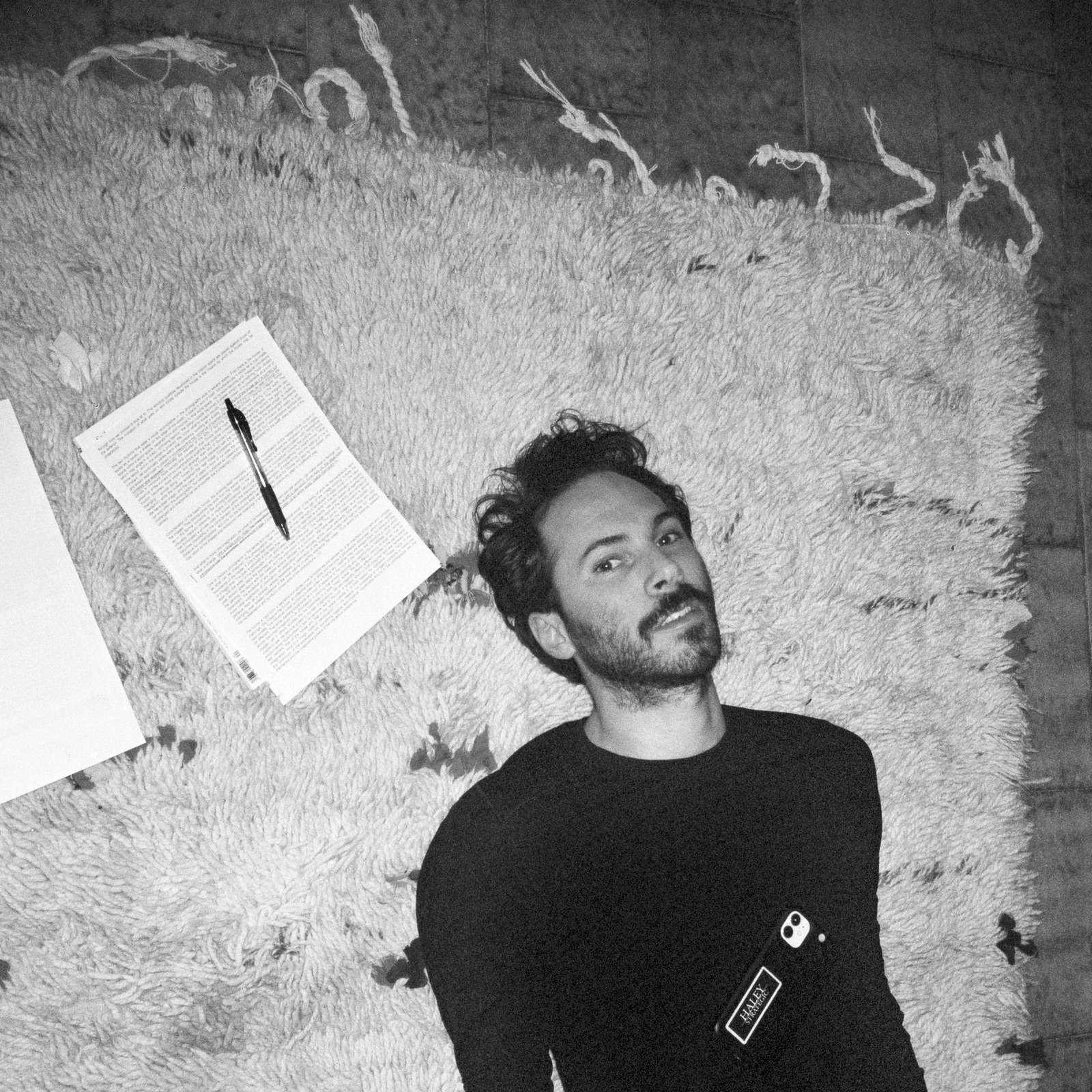
” I’m not scared of what I desire”
With lots of your tracks I feel as if in a romantic opera, Puccini or so. It’s such elaborate songwriting in a sense, without any vocals for sure but still with melodic phrases that stick in your mind. It’s a lot circling around minimal melodies that are highly effective emotionally.
As a joke my Japanese friends and colleagues often compare me with Rossini because of those melodic phrases. I believe in a strong melody framed in an elegant and simple idea — it doesn’t necessarily need to be a music idea. The frame makes it interesting, promotes tension. Like in a photograph, the stress is around the borders of the image, it’s there where the game is played.
You manage to mostly evoke life-affirming, positive vibes. The feelings of euphoria, ecstasy, enthusiasm also mean an opening up. It’s a relationship of trust that you need to build with the audience, so they feel free to let go. How is this to be achieved?
The melody is considered, especially from the context where I come from, probably the most vile music material you can decide to deal with, but I’m not scared of what I desire and what not, I have no prejudices and my only struggle is to respond honestly to what I really want. I learned that at a very young age when I was (i still am) a Straight Edge hardcore-punk kid. I hope that those who encounter my music can feel the same, so to allow themselves to embrace it, if they are attracted to [it] obviously, and enjoy it without any prejudices.
You called yourself a Rave voyeur. To what extent is the outsider perspective important to take when deconstructing genre tropes? How analytical is your approach? ‘Cause the result sounds so fleshy, it’s nothing too abstract, nothing too dry or you know skeletal – it has body.
I coined the term Rave-Voyeur inspired directly from the personal experience of being a sober Straight-Edge HC teenager participating in the night-life of my hometown area near Rimini, a well known dance club, party and ravey area.
I was pretty much the only clear-headed person among thousands of people in clubs and I just liked to observe, be aware of what was happening around me, ask myself questions and analyze my surroundings. While I was there with my friends it was interesting to see those dynamics and try to find my own way to of course enjoy the situation and not necessarily judge and be passive.
Only later on it happened that I began to incorporate them into my work and make them an integral part in expressing the concepts I was trying to expand and develop.
To me the most interesting dimension is the one that oscillates between analytical to instinctive and irrational. I’m not even interested in finding a steady place between the two, I want to oscillate, like a sine wave, a thing that is alive, without movement nothing is happening.
“I want to oscillate, like a sine wave”
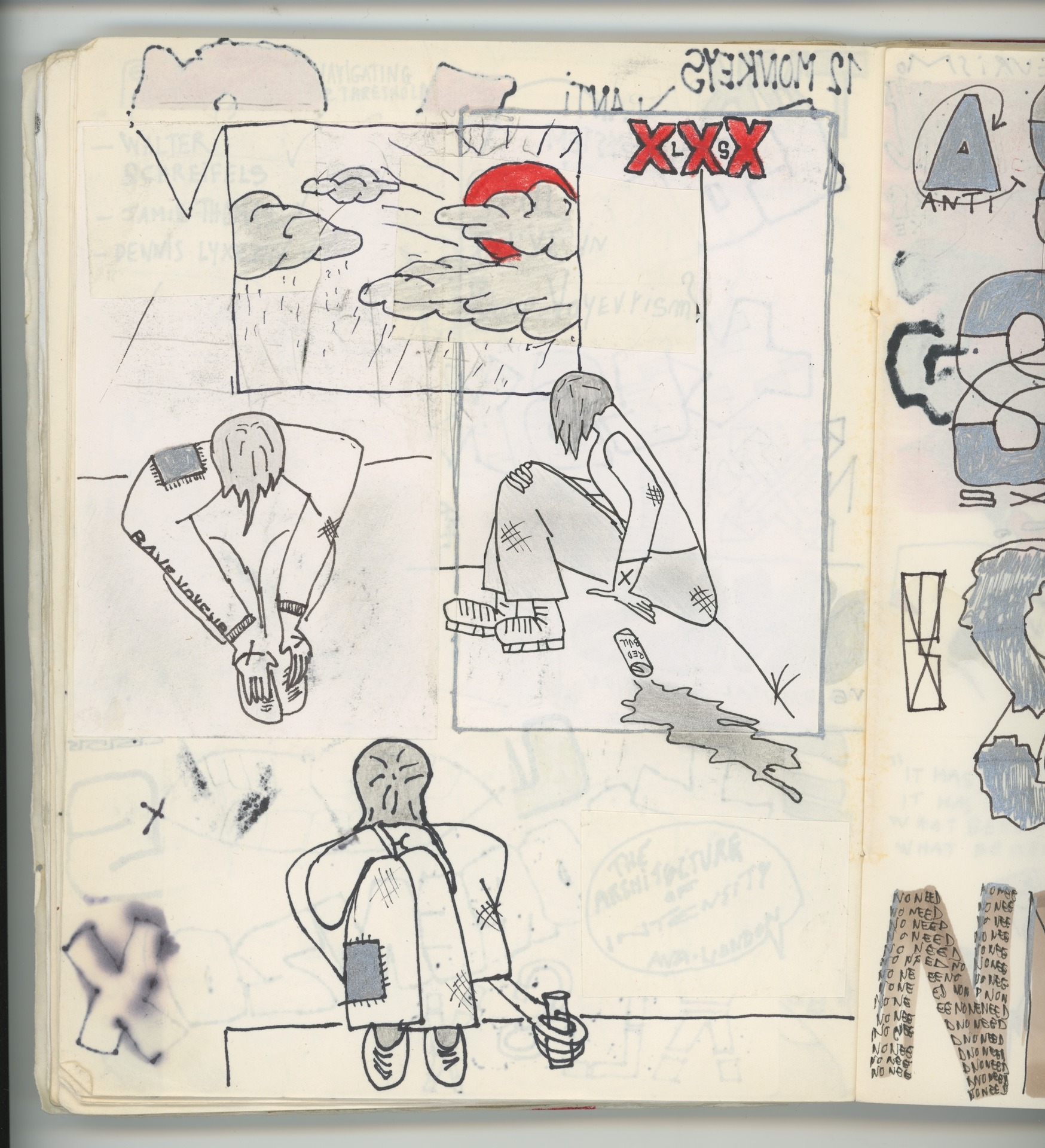
With how little means you can get maximum emotional impact, this really is what fascinates me with your sounds. You’re a minimalist in a sense — taking into account that early pioneers of minimalism said it should rather be called maximalism. Are you influenced by minimalist strategies?
If the listener has to make an effort to mentally complete certain aspects of a composition there are more chances that they will find themselves involved in it. I always liked the idea to leave room for that.
I used to describe my music as Minimalism on Steroids. It certainly pays a debt to the minimalism school but also it’s now 2025, it’s a different world, inhabited by different humans driven by the same instincts dressed slightly differently, under the big omnipresent umbrella of capitalism. So, as I refer constantly to a huge Supersaw sound, then my music it’s an OGM. A doped athlete who cannot actually reach the finish line, a mutant who falls apart as he walks and I’m Dr. Frankenstein.
“A doped athlete who cannot reach the finish line”
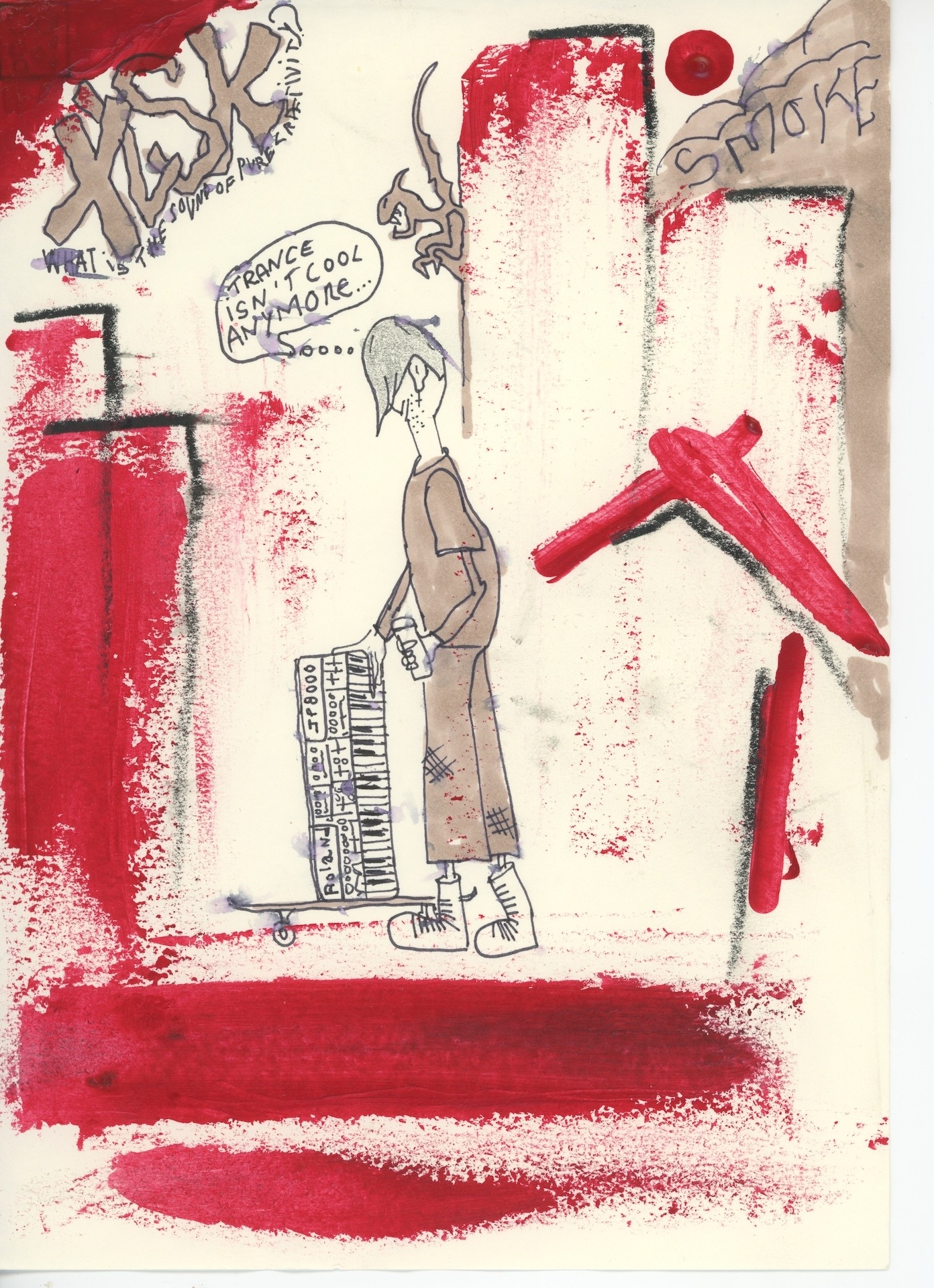
To trigger and tease people does mean that also you as an artist need to get involved emotionally. You have to be sincere with your own feelings. How do you achieve this state where you can trust the process?
In the troubled life-long journey to understand who you are and what you want, you build confidence step-by-step creating a peculiar method that allows you to avoid making decisions.
Once something is in, you give it for granted and it is not questioned anymore.
It passed through all the tests to be certified as something that belongs to you.
It will be part of the process and it will become a muscle memory thing you like to do. It can be subjected to revisions, but you need to lock it away and just believe in the procedure with which it arrived there.
“Tension, release, expectations”
With Scacco Matto you go more musical, have musical build-ups, a dramaturgy that your earlier tracks somehow avoided, or solved in endless loops. It fits your label Warp a lot, I feel. Actually you and Oneohtrix Point Never are the ones that managed to go from a flagship label for edgy, experimental sonics like Editions Mego to Warp, a taste-making label for whole generations. This transition from experimental gatekeeper underground to rather ‘musical’ electronic dance music that appeals also to a mainstream audience — how was this shift or jump achieved? Aesthetically? And where are you heading now?
Quantum Jelly (2012) on Editions Mego is my most important record. It was conceived in a way that the tracks could really be there to make explicit the concept behind the creation of those. To make it short — Focus on the Trance build-ups, why are they so appealing? — Tension, release, expectations. Try to expose these characteristic through templates that implicitly still maintain the emotional charge. The recipe was very determined, the concept clear — at least to me — and I tried to execute it in the best way I could.
I could have made ten other records exactly like that but enthusiasm plays a big role in my life as an artist so things have to change even if everything orbits around the same idea. With Persona, my debut on Warp, I was to try to approach the song-form/structure keeping in mind what I learned from my two previous “Pointillistic-Trance” records and this transformed my sound into something easier to digest but still based on the same strong idea.
In Persona I also was more keen to include in the narrative some more personal aspects of myself as the idea of Rave Voyeur, the HC Straight Edge references — musically and aesthetically — and later in Scacco Matto the chess game as a metaphor to describe the endless internal battle with myself. It just constantly adds up.
You follow a multidisciplinary approach where concept, artwork, titles, live performance all relate to each other on a deeper level. You’re very good with catchphrases, slogans and neologisms – pointillistic music, rave voyeur, think big, the trance to come. Concept and sounds, everything is super precise with you, spot on, elaborate though at first side very easy to grasp. You don’t pretend, you don’t want to be elitist, but reach everyone on a different level. The closer you look, the deeper the message gets. It’s really something highly artistic, I feel. Plus content equals form — the king’s discipline of the arts. This holistic approach, the universe you create, the world-building aspect that each album holds, I can imagine that it’s a long process to get to these results?
Everything we do matters. I speak about my work — so about myself — every second of my life. Only if my work is a real representation of who I am can I do that. It’s all around me and every second I have is a chance to manifest myself in this world, start a conversation with the surroundings. The title of a track is a beautiful chance to add a little brick made of letters and words to your world. It is a chance to add meaning to all the other things you mentioned sonically, visually, in the form of writing or just wearing a shirt. We are complex creatures and the world is chaos, but if we give in and respond to ourselves honestly things will start making sense or not make sense in a coherent way.
You’ve been an art student? Is it true?
I studied Musicology in Bologna but my maestro is a photographer, Guido Guidi, the most important Italian living photographer, he is 80 now. When I was 19 I spent three years of my life with him, without that period I wouldn’t be here talking to you.
Your music is very constructed, like it’s composed really, but on the other hand feels so sincere, and natural. That’s another thing that fascinates me with the Lorenzo Senni style – Even though it’s so precise and on point, so synthetic too, you manage to include innocence in your tracks. You create for the open minded. Do you have an explanation for that? What’s the relation of the organic and the synthetic?
Like Hanslick was asking, what is beautiful in music, an amazingly written score or a composition that makes your feelings vibrate? …also what about Apollonian and Dionysian? I am not intelligent and erudite enough, but I’m experimenting in my little laboratory, and I don’t need answers, I just need the excitement of continuing to ask myself questions.
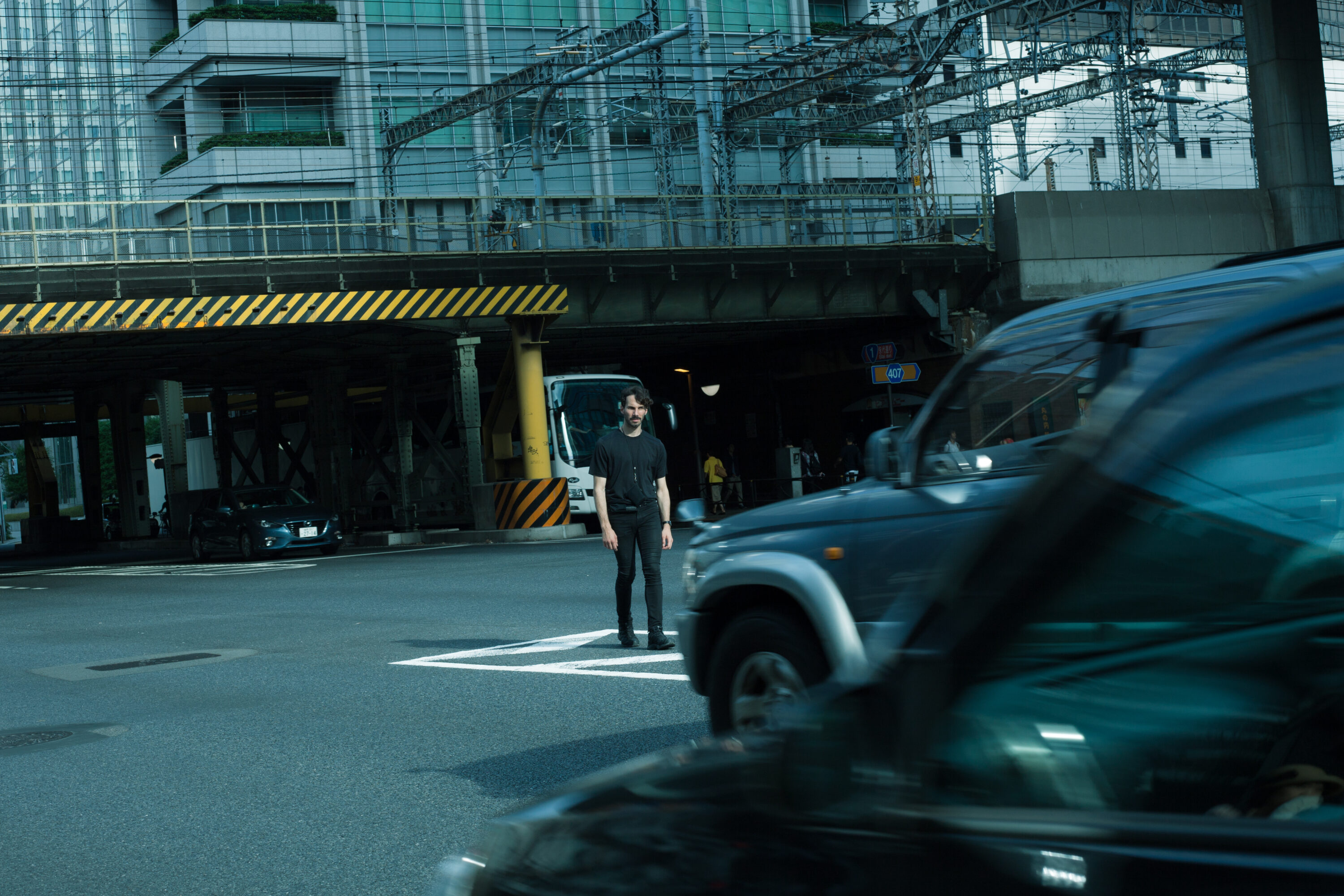
A shortened version was published in the Elevate Festival Magazine 2025.
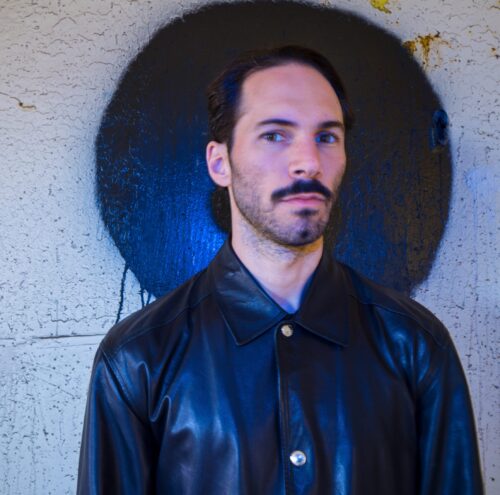
Lorenzo Senni

This article is brought to you by Struma+Iodine as part of the EM GUIDE project – an initiative dedicated to empowering independent music magazines and strengthen the underground music scene in Europe. Read more about the project at emgui.de
Funded by the European Union. Views and opinions expressed are however those of the author(s) only and do not necessarily reflect those of the European Union or the European Education and Culture Executive Agency (EACEA). Neither the European Union nor EACEA can be held responsible for them.